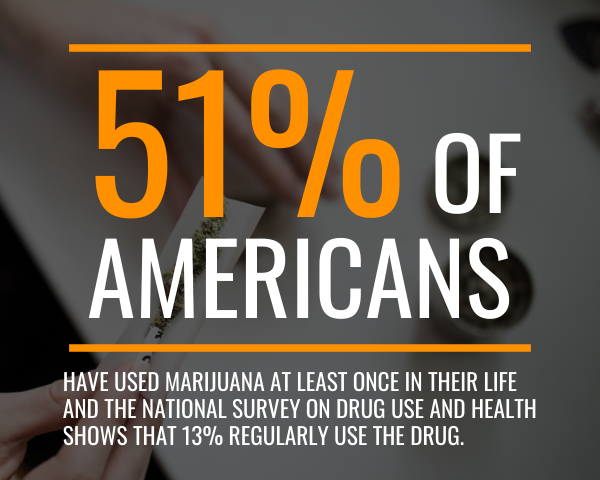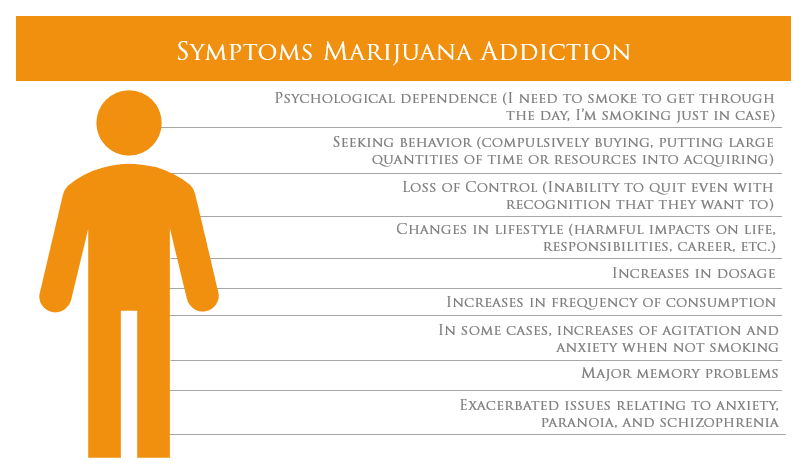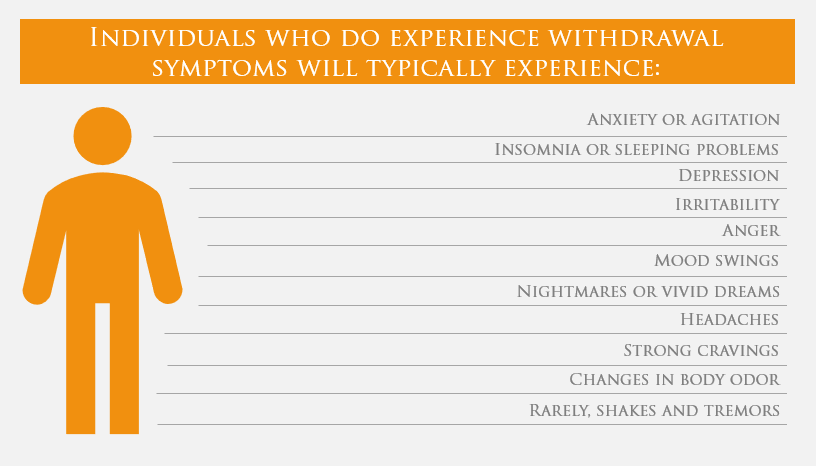
Marijuana is increasingly seen as safe and even harmless in the United States. Most of the country (60%+) want the drug to be legalized for recreational use. Many states have already legalized it for such use. A Gallup Poll shows that 51% of Americans have used marijuana at least once in their life and the National Survey on Drug Use and Health shows that 13% regularly use the drug. That’s important, considering it impacts rates of substance use disorder, or marijuana addiction. While many people feel that marijuana isn’t addictive, data shows that 9% of all users eventually develop marijuana use disorder, or addiction.
While it’s true that marijuana has a relatively light addiction risk profile when compared to many other drugs, legalization and acceptance don’t make a drug completely safe. In fact, alcohol, one of the most legal intoxicating substances in the world, results in over 208 million cases of addiction each year (worldwide) or affecting about 4.1% of the population.
If you or a loved one is struggling with Marijuana, there is help.
The experts at the Gooden Center, a Pasadena rehab center for marijuana use disorder, are here to offer compassionate, science-based care and treatment to get you back on your feet. Our approach combines behavioral therapy and counseling with supportive and complementary therapies, personalized treatment, and a home-like environment to give each individual the best possible chance of recovery.
Symptoms Marijuana Addiction
Marijuana or cannabis shows major signs of use in most individuals, no matter the strain they are using. People act “high”, showing signs of lethargy, cravings, impaired motor skills, slowed reflexes, lack of concentration, and memory problems. These symptoms will change depending on the strain and dosage but are typically evident in a user.
Over the short-term, these symptoms are mild and don’t interfere with a person’s ability to live, complete responsibilities, or partake in social life. With heavy use, they can become progressively more severe, until they inhibit an individual from functioning. However, nearly all of the symptoms of concern are mental-only, which means that you must pay attention to someone’s behavior, behavioral changes, and personality over a longer time to identify marijuana addiction.

Like most drugs, a small and occasional dose of marijuana has very few bad side effects. In larger doses, over the long-term, marijuana results in psychological and behavioral dependence. This means that the individual may rely on cannabis to get through something, to cope, to relax, or to sleep. They may also panic if they don’t have the drug, may spend all of their time and money acquiring or using it, and may pathologically lie, hide usage, or use the drug in ways that are not safe (before driving, before work).
In any of these cases, it is highly likely that your loved one has a problem. And, while the current trend is for individuals to avoid treatment, the National Institutes of Health claim that seeking rehab treatment and mental health treatment following a Cannabis use disorder can greatly improve long-term outcomes.
Withdrawing from Marijuana
Marijuana is not typically associated with withdrawal, but an estimated 30% of heavy marijuana users experience withdrawal symptoms. For most users, withdrawal is all about managing cravings, but little to no other side effects.
For most users, cravings will kick in within a day after the final dose and will taper off (mostly) after about 4 weeks. Cravings are typically much harder to deal with than physical symptoms, simply because they are recurring, trigger the same reasons an individual likely became addicted in the first place, and may align with periods of stress or difficulty.

You can expect these symptoms to escalate over the first 1-4 days, plateau, and then taper off over 1-4 weeks. Standard symptoms include cravings, which will last for an average of 4 weeks. In most cases, marijuana withdrawal symptoms are not severe enough to require medical monitoring. In addition, you can typically begin treatment during this process. Seeking out behavioral therapy during the marijuana withdrawal phase may help with overcoming cravings.
Marijuana Addiction Treatment

Marijuana addiction is relatively uncommon in comparison with other types of “hard” drug abuse, but still affects thousands of individuals. As a behavioral addiction with little physical dependence, marijuana addiction treatment must focus on mental health, behavioral therapy, and looking for the underlying causes of the addiction. The Gooden Center offers marijuana addiction treatment in Los Angeles and Pasadena with a strong focus on mental health.
Our program includes DBT, CBT, and ACT with complementary therapies designed to boost physical health, build coping mechanisms, and give individuals the tools to live a healthy life without drug abuse.
